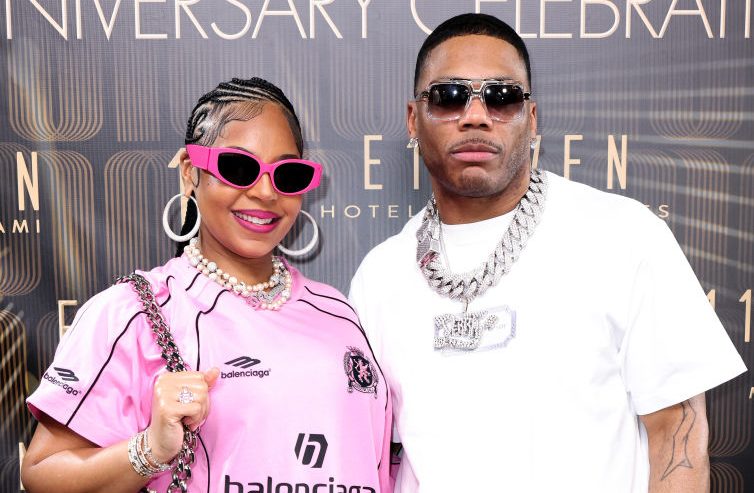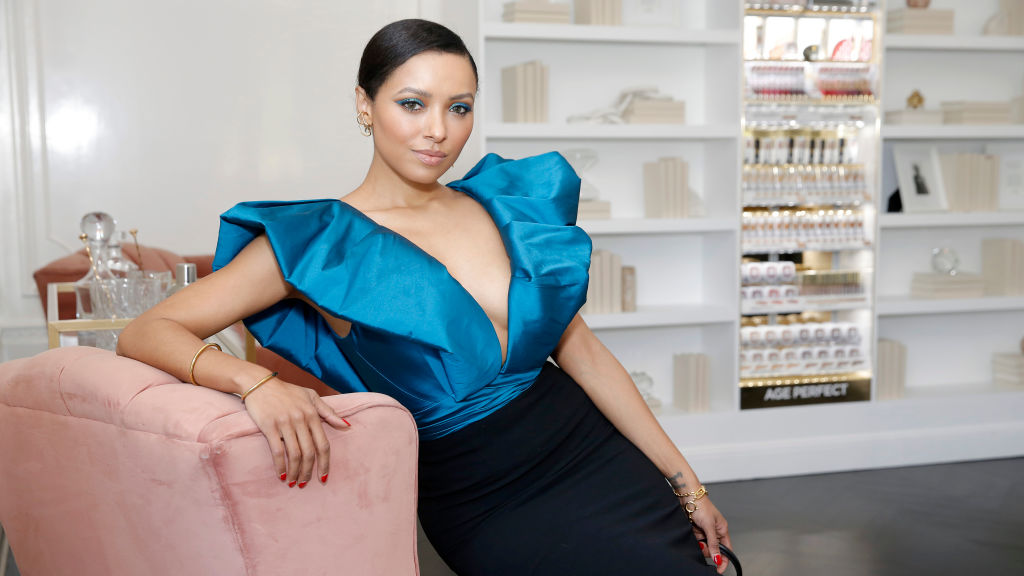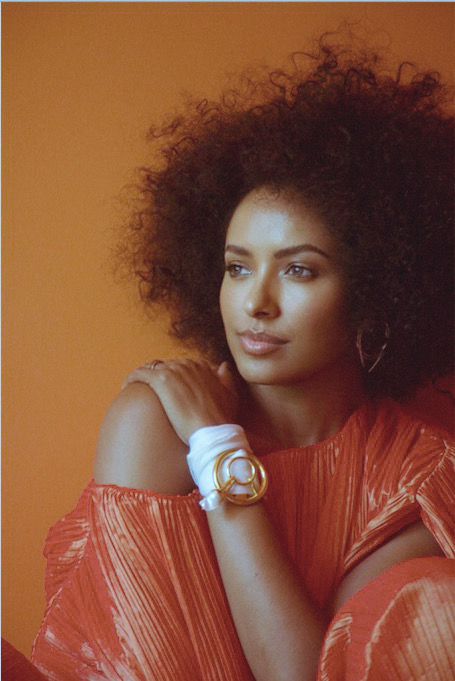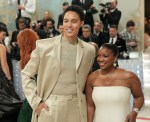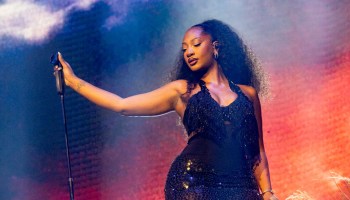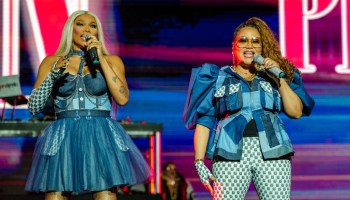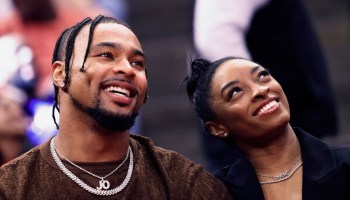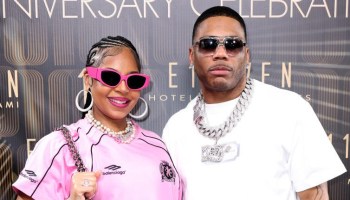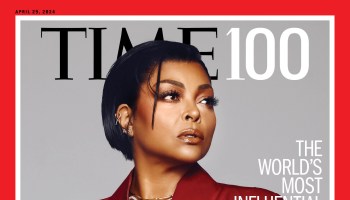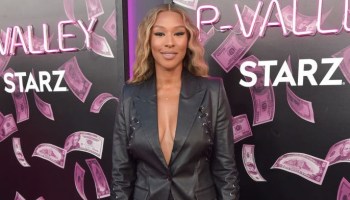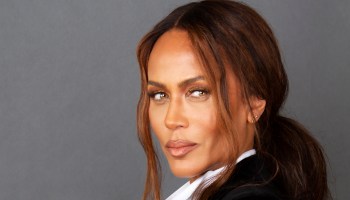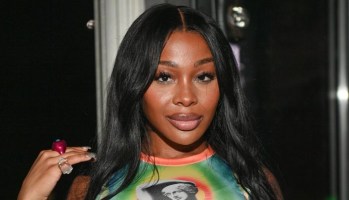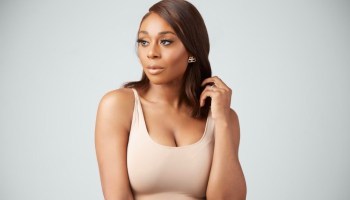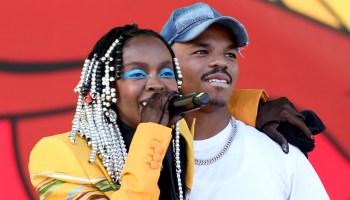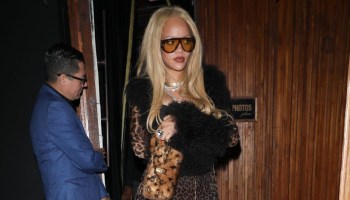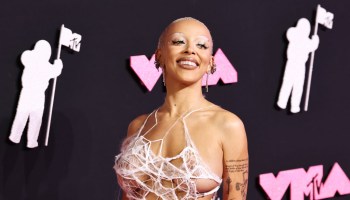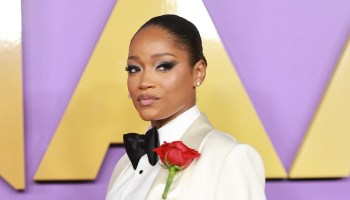Kat Graham is, by far, one of the most underrated and versatile Black actresses of the last decade. Most notable from her role as Bonnie Bennett on The CW supernatural drama series The Vampire Diaries, Kat Graham has evolved before our eyes and on our TV screens — nd thanks to COVID-19, the 13” silver screen of our laptops. The biracial actress, singer, model and dancer — whose film credits expand from rom-com 17 Again with Zac Efron to embodying Jada Pinkett-Smith in the biopic All Eyez On Me — is preparing for the release of Cut Throat City.
The film tells the tale of four friends who return to New Orleans after Hurricane Katrina and receive no help from FEMA thus prompting them to turn to a local gangster for support.
Directed by Wu-Tang Clan’s RZA and written by P.G. Cuschieri, Kat Graham’s cast members include Shameik Moore, T.I., Terrence Howard and Wesley Snipes to name a few. Her character, Demyra, is integral to the storyline as she protects and remains loyal to those she loves during the unprecedented time. I had the pleasure of connecting with Kat on behalf of HelloBeautiful for a conversation about the important role of Black women in storytelling, how costuming and styling impacts film and television, and her passion for young Black and brown girls.
HelloBeautiful: Tell me about Cut Throat City and your role in the new drama-heist thriller.
Kat Graham: Cut Throat City is about what life is like post-Hurricane Katrina in The Ninth Ward for this group of young Black men. I’m playing Demyra, who is the wife of Shameik Moore’s character in the film. After Hurricane Katrina, a lot of New Orleans has been able to be rebuilt up to 90%, but only around 30% of the damage that was done by Katrina in The Ninth Ward has been fixed. We shot in The Ninth Ward and there are still homes that don’t have access to electricity, running water and things like that.
How do you relate to your character, Demyra?
Demyra is really me had I not had the opportunities that I was able to have living in Los Angeles.I grew up pretty poor and we didn’t have a lot of money so she’s not that far. I’ve only had money the past ten years, but most of my life, my mom was a single mom and raised me by herself. My father was not around and we had to do what we had to do. I was grateful that she put me in acting and was able to put whatever money we had into dance class and acting classes. We really struggled and Demyra has really struggled in this film. She’s really loyal, almost to a fault, to Shameik’s character Blink. I feel like I’m like that in relationships. I’m very “ride or die” so I think we’re very similar in that way. I feel like she’s a lot of women – a lot of women [who] are struggling, especially right now with everything that’s going on with the virus with feeling that your experience as a Black woman and your voice isn’t being heard. That kind of frustration of feeling like you’re being snuffed out because you are, to many people, irrelevant, I think that a lot of us are feeling that way and are having to work everyday to fight against that feeling that our voice doesn’t matter and that we are powerless. There’s a lot of great movements happening right now to change that narrative.
Black woman to Black woman, it would be remiss of me not to ask you this. How do you believe Black women are playing an integral role in the support and uplift of our Black men, Black children and the Black community as a whole?
That’s such a layered question. I think that recognizing our own power whether you’re a sister or a mother to a young Black child or a spouse to a Black man. It’s also our journey, too. We look at Patrisse [Cullors] and everything that she’s doing within the [Black Lives Matter] movement and what she’s talking about in her Daily Digest and her books. We look at other Black women even down to Nina Simone and Angela Davis and all of these really incredible women who have been about self-acceptance and recognizing their own power. [This] has been really important to me during this time because women, especially Black women, are incredibly powerful in our image and how we want to be portrayed. Especially for me in terms of the media, down to styling, down to hair, down to projects that we want to support and lend our voice to, organizations that we get behind – we are really powerful as women.
You briefly mentioned hair and style. When it comes to Cut Throat City, or any other project that you’ve been part of, how important is it to really nail the style, hair, makeup and costume design of the character that you’re playing – especially when they’re characters that are a strong pillar in the Black community?
I’m so glad you asked that. I’m biracial, so how people assume that my hair should look has been a constant source of – I don’t even want to say “irritation” because that’s not even the right word. My natural texture has never been embraced up until recently where I’ve had to be like, “Well, I don’t have a hair stylist here so I’m doing my hair and let me see what I’m working with” because for so long when we talk about the female Black image, it’s sometimes dumped out or diluted to make space for a more diluted version of the Black woman. The reality is that whatever character you play, the hair is an extension of that. When I did All Eyez On Me, I cut off all my hair because Jada had short hair so that made sense for me in that film and I love her and want to do right by her and that image of her. For Emperor, that’s all my natural hair and those are my natural curls in the trailer. No makeup, no nothing, and that’s what I would look like if I was of that time. For Cut Throat, I wanted to make sure that the hair wasn’t perfect because this character for me really was about her son and making ends meet because she was a nurse. I wanted to make sure the hair was clean, but it wasn’t overly done. It is a process.
Now doing Zooms, phone calls and little videos, I haven’t been wearing a wig. Not that anything’s wrong with that because I love extensions and playing with my hair, but I’ve really been finding, especially with the movement, my voice through my hair. Knowing that I’m not just Black – I’m literally half-African because my father’s Liberian – I really want to find ways of embracing that, even if it’s just doing a little video for Dior when I wore all of my natural hair with a little bandana on. I’m just finding ways to change the narrative of what I think Hollywood thinks I’m supposed to look like or sound like. A lot of us are finding our inner power whether it’s through clothes, fashion, brands, hairstyles, television shows and writers we want to support. All of that is really important in changing your awareness of self and awareness of sentiment.
On your Instagram, I see that you’re a proud supporter of the Girl Up Campaign and the UN Refugee Agency. How important is it to you to show young Black and brown girls the beauty of self-love, inner beauty and women empowerment, especially during these times?
What’s important about empowering each other, which I’m realizing more and more, and what comes with self-acceptance is also them seeing that I don’t always wake up and feel great, that I also have insecurities, and I have to really monitor how much social media [I take in]. We all have comparisons. I keep talking about hair because that’s something that I personally struggled with because that has almost been a thing within my career that I have been challenged about in terms of wanting my hair to have more texture. [They’d say] “Well, that’s not really what the network wants,” or “That’s not really what the producers want.” Even with stylists, I’ve gone through so many stylists because they’ve really diminished my own personal style, which is very “regal African meets European”. That’s my style. If you saw me right now, I have a headwrap on and I look regal.
It is so important because they don’t have that many young Black girls to look to. Thank God there are so many great young Black girls that have great messaging like Chloe x Halle or Yara [Shahidi]. There’s a good handful and how hard those girls have worked to be as successful as they are, there’s just not that many of them which is why I had to play the first Black April O’Neil because when I was a girl, there were no young Black ass-kicking cartoon characters – there just weren’t. I had The Proud Family and that was awesome, but I didn’t have that. Even just subconsciously for them to feel the accessibility and know that I also have my own struggles, and these are situations that we don’t keep inside and we express when I have frustrations. When we hear about different African-American young boys dying, it affects us, it affects me and it’s okay to be affected. It’s okay to have insecurities, but how do we get through that? How do we heal each other? How do we hold each other through this? I have so many young female fans that have been following me for a really long time and that’s probably the biggest reason I made a swerve in my career and the last movies that I’ve done have been about representing them and the idea that they are represented. I have to do right by them and be a positive role model for them.
Cut Throat City will be coming to theatres in August 2020.
RELATED STORIES:
LET’S MAKEUP: Celebrity Makeup Artist Sir John Shows Us How To DIY Kat Graham’s Golden Globe Glam
